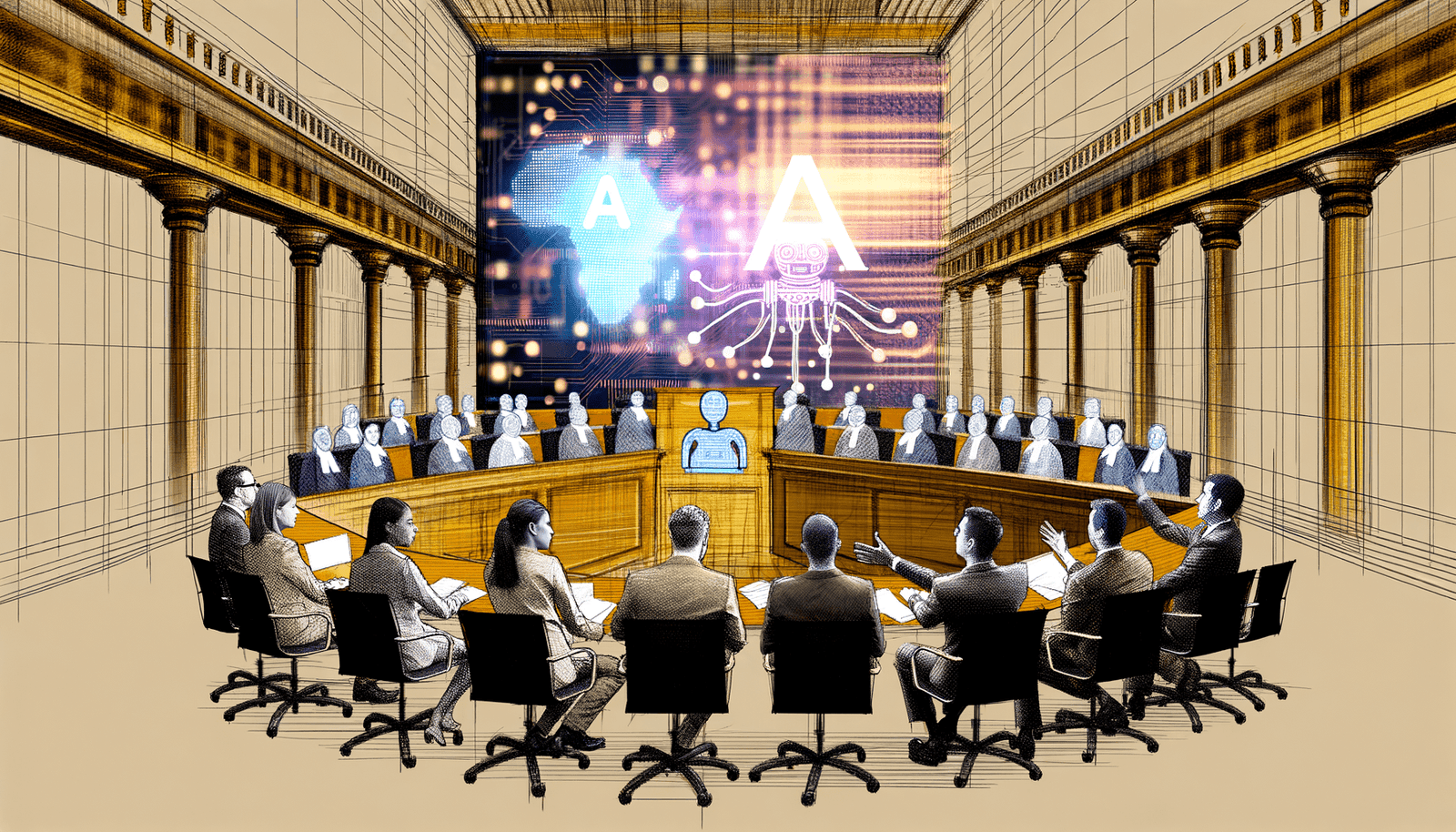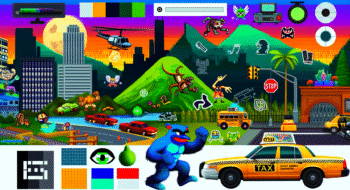In the rapidly evolving landscape of artificial intelligence, legal frameworks are struggling to keep pace with technological advancements. A recent lawsuit involving ANI Technologies and ChatGPT has raised critical questions about accountability, copyright, and the ethical implications of AI-generated content in India. As lawmakers and tech innovators navigate this complex terrain, the outcome of this case could set significant precedents, influencing the future of AI legislation and development in the country. This discussion explores the vital intersections of technology, law, and ethics in shaping AI’s trajectory in India.
Understanding the Legal Battle
The lawsuit between ANI Technologies, a prominent ride-hailing company in India, and OpenAI’s ChatGPT, has ignited a firestorm of debate about the implications of using AI in content generation. Central to the case are issues surrounding copyright infringement. It raises an essential question: When AI generates content based on vast datasets drawn from various sources, who truly owns that content? In this contentious scenario, ANI argues that ChatGPT has produced results that violate copyright laws, specifically concerning materials created by its own teams.
The legal implications stretch far and wide, not just for ANI and OpenAI, but potentially for every business leveraging AI technologies. If the courts side with ANI, it could signify that AI companies must tread carefully, shifting their operational strategies regarding dataset usage and content creation.
The Current Landscape of AI in India
AI’s rise in India is akin to a shooting star—rapid, dazzling, and somewhat chaotic. The country has embraced AI technologies across numerous sectors, from healthcare to finance and even transportation. Indian policymakers are now racing against time to formulate laws that can effectively regulate the burgeoning AI sector while fostering innovation.
The question remains: Can legislation keep pace with innovation? The answer might be more complex than it seems. The ANI versus ChatGPT lawsuit presents an opportunity for the legal system to refine its understanding of AI and its implications on copyright laws. For instance, in the U.S., the ambiguity surrounding AI-generated content has led to a variety of conflicting interpretations by courts. India faces the risk of a similar quagmire if the courts do not act carefully in this case.
How Copyright Law is Evolving
Copyright law, traditionally tailored to govern content produced by human creators, struggles to adapt to the rapidly populating world of AI. The nuances of AI-generated content complicate this traditional framework. As we consider this specific case, several challenging questions emerge:
- What constitutes originality in AI-generated content? Originality has long been a keystone of copyright law; however, as AI mimics human-like creativity, distinguishing between original and derivative works becomes intricate.
- Should AI-generated content be eligible for copyright? If so, who holds the copyright? The developers? The users? These are critical decisions courts must grapple with.
- How do we ensure accountability? As AI systems inadvertently grab snippets of existing works, clarity in liability becomes singularly important.
This conundrum highlights a broader trend—the need for a legal update that considers the implications of technologies like GPT-3 and its successors. As debates continue, industry leaders and policymakers must come together to consider both innovation and protection.
Commercial Implications of the Lawsuit
The lawsuit also casts a long shadow over the business landscape. Starting with ANI, companies that produce unique content could find themselves in a precarious position if the court rules in favor of stricter copyright regulations. For instance, will the increased accountability lead companies to invest in robust legal frameworks for their AI systems? Will this stifle innovation, pushing AI labs to restrict access to datasets for fear of legal repercussions?
On the opposite end, if OpenAI prevails, it might give a green light to broader deployment of AI technologies without worrying about copyright infringements, potentially overwhelming creators and thought leaders in various industries.
The Global Perspective
India isn’t alone in grappling with the complexities surrounding AI and copyright. Across the globe, jurisdictions are running into similar challenges. The European Union has taken substantial steps towards regulating AI with its Artificial Intelligence Act, while the U.S. has only recently begun to engage more deeply with these issues. Yet, the legal outcomes can vary vastly from one nation to another based on existing frameworks and the latitude granted by different legal systems.
As countries around the globe start to formulate rules specifically designed for AI, India is at a pivotal moment. How these international trends affect domestic regulations will ultimately depend on the outcomes of landmark cases like ANI vs. ChatGPT.
The Ethical Quandaries of AI
Amid the legal battles, ethics plays a paramount role. The rise of AI has led to unsettling questions about authorship, creativity, and the moral standing of machines generating works that were historically the domain of humans. As the lawsuit unfolds, the ethical stakes will only intensify.
What are the boundaries we should enforce to protect human creators? And should AI itself have rights? After all, if a machine produces a piece of art or music that spawns a significant financial return, should we treat its creators—i.e., the developers of that AI—any differently than we do artists in the traditional sense?
Potential Outcomes and Implications
As the dust begins to settle on the ongoing legal confrontation, a myriad of possible outcomes arises. Should the court rule in favor of ANI, the outcome could establish strong precedent, propelling AI companies to reevaluate how they operate. It would likely lead to the necessity of implementing comprehensive licensing agreements and ushering in stricter guidelines for how AI can be developed.
Conversely, if OpenAI successfully pushes against ANI’s claims, we could witness an unstoppable wave of AI integration across industries, with fewer restrictions and more creative outputs. Such a situation could, however, pose risks to the original creators who may feel overshadowed in this tech-driven realm.
The key takeaway for businesses and creators alike is that vigilance is crucial. As reported by various sources, staying updated on the proceedings will not only inform strategies but also ultimately impact decisions across countless industries. Developing clear protocols surrounding AI-generated content will be essential regardless of the outcome of this case.
Looking Ahead: The Future of AI in India
The ANI vs. ChatGPT lawsuit is not merely a case; it’s a bellwether for the future of AI legislation and development in India. With a rapidly growing technology sector, the outcome will echo far beyond the courtroom and influence how other companies engage with AI and its capabilities.
Whether through fostering alliances between tech companies and governments, creating awareness of ethical implications, or encouraging innovation while respecting creators’ rights, the lessons gleaned from this legal standoff could carve the path ahead. Ultimately, nurturing an environment where creativity and technological advancement coexist harmoniously is paramount.
In conclusion, the interaction between AI technologies and intellectual property law in India is at a critical juncture. We should all stay tuned to see how this case unfolds, as it may indeed alter the very fabric of AI development and usage in the country. For more insights on the transformative world of AI, don’t forget to check out Neyrotex.com.
As we forge ahead in this uncharted territory together, embracing the transformative impact of technologies like AI while doing justice to creative expression will be vital. Celebrating innovation without compromising ethical standards will set the stage for the next big leap in technology. Whether you are a tech aficionado, businessperson, or simply someone curious about the future, one thing is certain—the trajectory of AI in India is one to watch closely.
Stay informed, stay engaged, and who knows? The next piece of groundbreaking legislation on AI could very well stem from the dialogue born out of this lawsuit. As we turn the page on this chapter, let’s ensure our eyes remain set on a future that is not just exciting, but just. For further exploration of the rapidly evolving implications of AI, visit Neyrotex.com.






